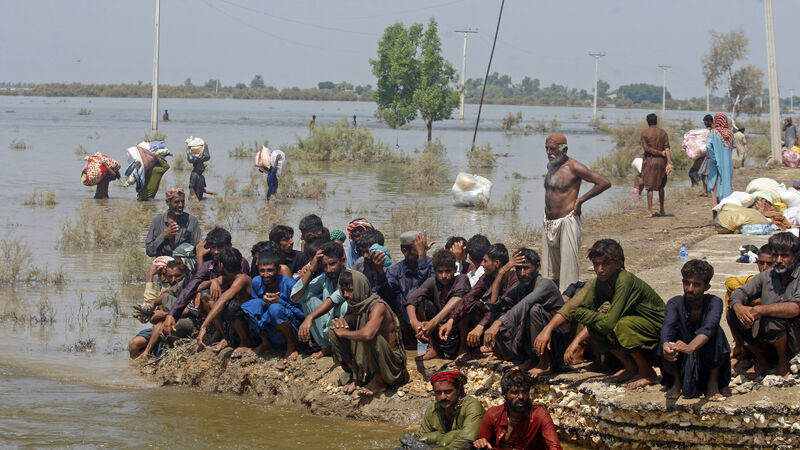Climate change 'poses major risk to global peace and security'

The expected increase in climate refugees will likely put 'stress on cities and urban areas where the demand for housing, food, energy, and jobs may rise', said the European Commission. Picture: Fareed Khan/AP
Increasingly intensive climate change could have major implications for peace and security globally, with mass migration, pandemics, and war the likely consequences, the European Commission has warned.
The commission said the EU now needs to be more cognisant of the proliferation of threats posed by climate change in areas such as organised crime, armed forces, national security, and food production.
CLIMATE & SUSTAINABILITY HUB













